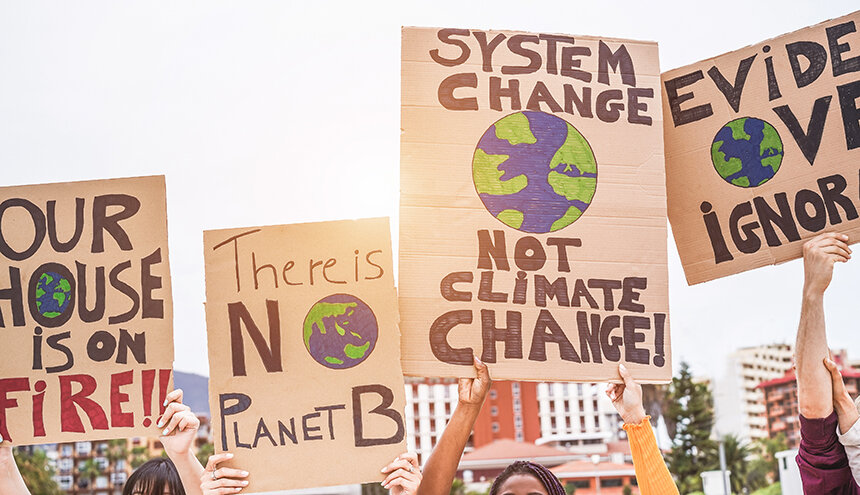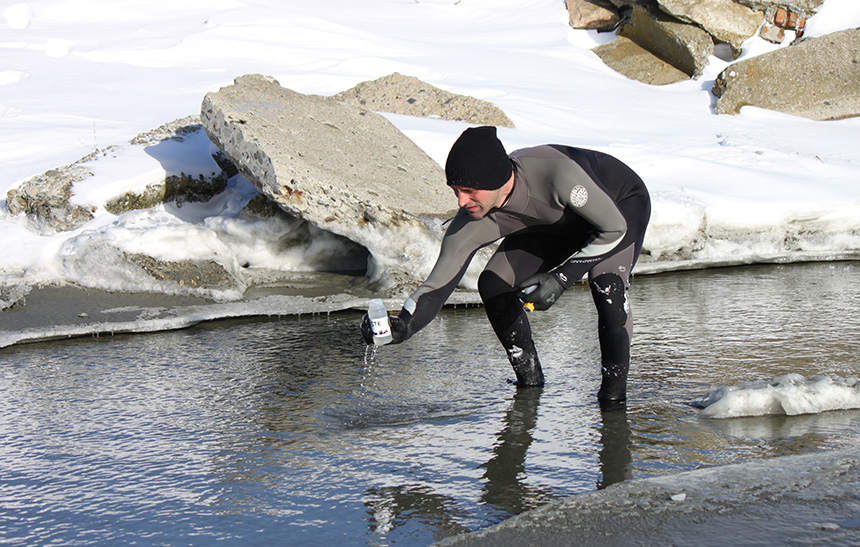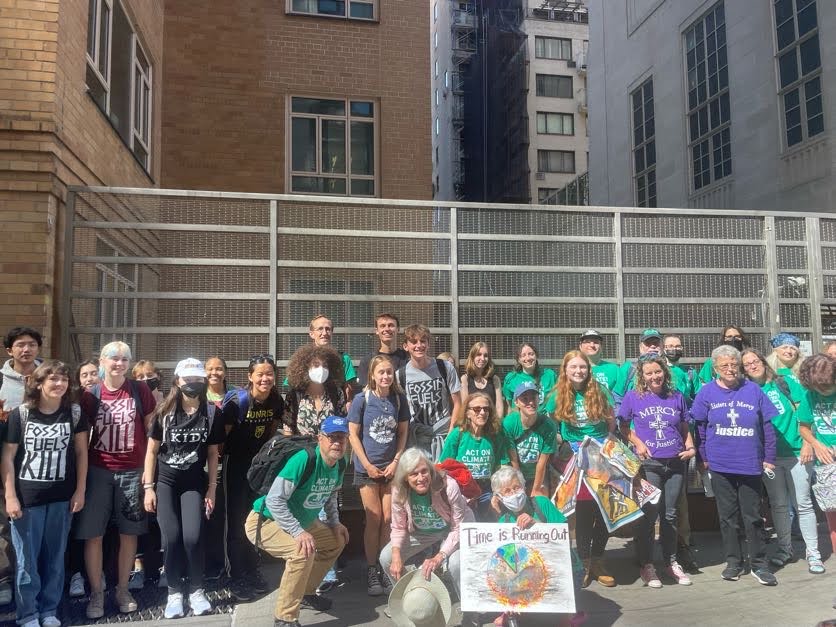Students Aim to Hit Fossil Fuel Where It Hurts
December 5, 2012
PROVIDENCE — In July, environmental activist Bill McKibben wrote an article about global warming for Rolling Stone magazine, which, for a brief moment, made the country forget about Justin Beiber. Beiber, the issue’s cover boy, took a surprising backseat to McKibben, whose lengthy and arithmetic-laden article has wracked up 124,000 Facebook likes to date.
McKibben’s article, “Global Warming’s Terrifying New Math,” plainly explains that to prevent the globe’s average temperature from rising by 2 degrees Celsius, the limit that even conservative analysts agree is acceptable, 80 percent of the world’s known fossil-fuel reserves must remain in the ground. In November, the International Energy Agency’s World Energy Outlook reconfirmed this math.
After making his readers’ collective jaw drop, the second half of McKibben’s article unapologetically points to the fossil-fuel industry as the enemy. He reminds readers that the industry plans to burn all of its reserves, and that ExxonMobil intends to spend about $100 million each day through 2016 searching for additional reserves.
Finally, McKibben provides his ideas about fighting the fossil-fuel industry. His linchpin is divestment from the industry.
Birth of a movement
Divestment from fossil fuels means selling investments in companies such as Chevron and BP. Individuals can divest, but it’s when large organizations such as universities and municipal governments divest that companies like ExxonMobil are tangibly affected financially.
Most colleges have huge endowments, money built up through donations over time. They invest their endowments in the market and then use the profits to pay expenses. Brown University’s endowment is about $2.5 billion. Harvard’s is more than $30 billion. Collectively, the money invested by universities into the market is enormous.
Between 30 and 40 percent of the market is made up of energy industries, according to Stephen Mulkey, president of Unity College in Maine, the first college to commit to divesting from fossil fuels. That means there is a high likelihood that a college’s endowment is heavily invested in fossil fuels. If enough colleges follow Unity’s lead and divest, the fossil-fuel industry will be pressured to pursue a less harmful business model that is focused on growing renewable energy, according to Mulkey.
To support their case for divestment, both Mulkey and McKibben cite the only other example of a large-scale divestment effort — the one that targeted companies that turned a blind eye to apartheid in the 1980s by doing business in South Africa. That divestment movement spread from college campuses to governments. By the time the apartheid regime folded, 155 campuses had divested, while 80 cities, 25 states and 19 counties had taken some form of economic action against the companies who had supported it.
McKibben is known for motivating people to action. In 2009, he and his organization, 350.org, organized what CNN called the “most widespread day of political action in our planet’s history,” which included 5,245 activist events in 181 countries. Two years later, McKibben rallied more than 12,000 people to Washington, D.C., temporarily stopping the Keystone XL pipeline.
So, not surprisingly, when college students returned to their campuses this fall, many were thinking about divestment from the fossil-fuel industry. Now, just three months later, 100 college campuses have active divestment campaigns.
Brown Divest Coal
“I wanted to get involved with something bigger than myself,” Brown Divest Coal volunteer Charlotte Delpit said. The Brown University student heard about the campaign early in the semester and joined in mid-November. During her first week volunteering, she organized an information session for people like herself who missed joining at the beginning. Her meeting drew 13 people.
Brown Divest Coal (BDC), now in its third month, is a fast-growing group of students demanding that Brown University divest from the 15 U.S. coal companies with the worst environmental and social records. The “Filthy Fifteen,” as the BDC has dubbed these companies, includes Duke Energy, American Electric Power and Peabody Energy.
The BDC has grown to include about 90 active members and has obtained more than 1,750 signatures from students, faculty and alumni in support of divestment.
According to Katie Cohen, a BDC member, gaining support has been easy. “I haven’t witnessed any resistance (from students, faculty or alumni) during my time volunteering,” she said. “People are really behind this issue. They want to see their university reflect their values.”
BDC has formally submitted its demands to Brown University President Christina Paxson, and have since met with Paxson twice. The group also is working with the university’s Advisory Committee on Corporate Responsibility in Investment Policies, which is charged with the review of issues of ethical responsibility in Brown’s investment policies.
BDC members have organized numerous information sessions, and convinced McKibben to add Brown University to his nationwide “Do the Math” tour.
More recently, on Nov. 29, BDC organized a student rally outside Paxson’s office. Kristy Choi, a student leader, led 120 sign-waving protesters in chants, including, “Oooh, its hot in here. There’s too much carbon in the atmosphere.” Other protestors delivered impassioned speeches about the negative impacts felt by people worldwide that are derived from American support of fossil fuels.
The 45-minute rally concluded after a list of protest signatures was delivered to Paxson’s office. Rally attendees also tied ribbons representing a healthy environment to a railing outside the president’s building to remind her they had come.
Looking ahead, BDC volunteers will send e-mails to alumni encouraging them to send letters to Paxson in favor of divestment.
“There is a higher level of student involvement than in other campaigns,” said Will Vanderbilt, a paid organizer from the Divest Coal Coalition. “Volunteers are making phone calls to other students, holding info sessions, and organizing and participating in events.”
Vanderbilt is encouraged that the administration has met with BDC on multiple occasions. “Some campus divestment campaigns are struggling just to get a meeting,” he said.
One example is Harvard University’s divestment campaign, which is focused on the entire fossil-fuel industry — a more ambitious target than Brown’s coal initiative. Harvard’s president, Drew Faust, has refused to meet with student leaders about divestment, despite 72 percent campus approval for the idea. Faust is on record as saying that Harvard considers divestment “only in the most extreme of circumstances.”
According to Faust, Harvard needs to be committed to generating funds to support education and research, and not to “using investments to advance a particular agenda.”
Faust’s refusal to consider divestment despite Harvard’s otherwise ambitious carbon reduction goals and commitment to sustainability reveals a common concern about divestment: that divesting will lead to negative economic consequences for the entity divesting.
Financial pain or gain?
Cohen, the BDC member who noted that Brown University students are overwhelmingly in favor of divesting, said the one concern she hears on campus is that divesting could negatively impact the university financially. However, she believes the choice between strong investments and divestment from fossil fuels is a false one. She claimed Brown’s investment advisors can secure strong investments without investing in coal, but for university presidents who must answer to donors, Cohen’s conviction remains elusive.
Paxson, despite her willingness to meet with BDC leaders, remains wary. According to a statement provided to ecoRI News by Brown University, Paxson values student input about investments but is refraining from further comment until the Advisory Committee on Corporate Responsibility in Investment Policies (ACCRIP) makes its recommendation regarding divestiture.
According to ACCRIP’s charter, the committee can make a recommendation regarding Brown’s investments if it deems an issue brought before it causes “social harm.” Social harm is defined as the “harmful impact that the activities of a … corporation have on … persons, or on the human or natural environment.”
ACCRIP can recommend that a letter of protest threatening divestment be sent to an offending corporation if the corporation doesn’t correct its socially harmful behavior, it can send a representative to an offending corporation’s shareholders meeting to voice the university’s concerns, or, in severe cases, ACCRIP can recommend divestment from an offending corporation.
In order to recommend divestment from a corporation, ACCRIP must first consider the financial consequences of divestment and whether divestment will “have a positive impact toward correcting the social harm.” The charter also indicates that in some cases divestiture can be recommended because a “company in question contributes to social harm so grave that it would be inconsistent with the goals and principles of the University to accept funds from that source.”
Past Brown University divestments include South Africa, Sudan, and HEI Hotel & Resorts, each for human rights concerns. Harvard has divested from South Africa, the tobacco industry and Sudan. Considering that both institutions have divested on repeated occasions, one may infer that the divestments didn’t substantially harm either university’s endowment. Still, as even McKibben concedes, divesting from fossil fuels is tougher than divesting from South Africa.
“If we divest, it would be from specific companies, not the (coal) industry,” said Christopher Bull, chairman of the ACCRIP. According to Bull, the committee is currently investigating each of the 15 coal companies brought before it by the BDC. He said the ACCRIP doesn’t have a timeframe for its decision. “(AACRIP is) a volunteer committee, so we don’t always have the time needed to have decisions happen quickly.”
Categories
Join the Discussion
View CommentsRelated Stories
Your support keeps our reporters on the environmental beat.
Reader support is at the core of our nonprofit news model. Together, we can keep the environment in the headlines.
We use cookies to improve your experience and deliver personalized content. View Cookie Settings



